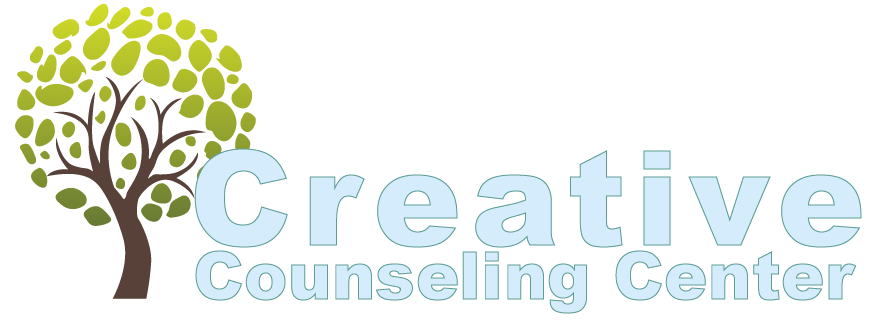5 Tips to Manage Adult ADHD Symptoms
Are you interested in strategies to effectively manage your ADHD symptoms? Read on to learn more!
What exactly is ADHD?
According to the National Institute of Mental Health , ADHD is a disorder marked by an ongoing pattern of inattention and/or hyperactivity-impulsivity that interferes with functioning or development.
It can appear as early as age 3 or as late as age 12, but to be diagnosed as an adult, symptoms must have been present in the individual’s life by age 12. ADHD does not suddenly appear in adults, although an adult diagnosis can offer clarity when looking back on one’s childhood struggles.
Adult ADHD vs. Childhood ADHD
Most are familiar with the stereotypical presentation of ADHD: young, usually male, fidgety and unable to sit still, highly energetic, and difficulty concentrating for extended periods of time.
But research over the past decade has shown us that many individuals are being diagnosed with this executive dysfunction disorder in adulthood, and it often looks very different from the childhood presentation.
While children tend to externalize their ADHD symptoms (i.e. unable to sit still, constant interrupting, inability to wait in line, etc.), adult ADHD often presents with more internalized issues. For example, adults with ADHD may struggle with some or all of the following:
• A chronic sense of underachievement
• Difficulty getting and/or staying organized
• Chronic procrastination
• Inability to focus on specific projects or tasks for any length of time
• Intolerance of boredom
• Impatient/difficulty with any type of waiting or frustration
5 Tips to Manage Adult ADHD
If you’re an adult struggling with ADHD, you’ve probably developed many of your own coping strategies to handle the daily stresses of life with your ADHD symptoms.
Here are 5 tips to gain greater control over your focus and productivity and better manage your adult ADHD symptoms.
1. Externalize Information
One of the hallmarks of ADHD is an impaired working memory, i.e. being unable to hold information in your mind for an extended period of time. If you’re trying to rely on your memory alone to manage your life, you’re setting yourself up for failure. According to Dr. Russell A Barkley
, an internationally-recognized expert on ADHD, information can be externalized in the form of sticky notes, written lists, physical calendars, charts, and/or other physical reminders
2. Set Time Limits
If you have difficulty starting a project or task, utilize the Pomodoro Technique
to make your work more approachable. Set a timer for 25 minutes and work on a single task for that period of time. If you find your attention straying, gently remind yourself to focus. After the time is up, give yourself a 3 to 5 minute break. Repeat the sequence 3 or 4 times before moving on to another task.
3. Make a Daily To-Do List
And stick to it! Begin your day by identifying 2-4 top tasks
that must be done for your day to be a success. Adults with ADHD often underestimate the amount of time a task will take, so by limiting yourself to a smaller number of to-do’s, you’re more likely to be successful in accomplishing your tasks.
4. Get Rid of Clutter
Clutter is a common presentation of adult ADHD. Whether you have stacks of receipts, piles of paper, random knick knacks, or any other collection of miscellaneous “stuff,” adults with ADHS often struggle with some form of clutter. Trying to focus in a cluttered space
puts more stress on the ADHD brain, reducing your already impaired executive function capabilities. To be more productive and focused, maintain a clean workspace and avoid clutter, giving yourself the greatest opportunity for success.
5. Find a Therapist Who Understands Adult ADHD
This can make all the difference between continuing to struggle with your ADHD symptoms and making progress in your ADHD journey. Not all therapists are adequately equipped to address your ADHD symptoms. While having a practitioner who is a good listener is of utmost importance, it’s also necessary to work with someone who understands the mechanisms behind ADHD behavior. This way, you’ll be able to work together toward practical solutions that will improve your life.
Contact Creative Counseling Center
If you believe you may have adult ADHD, or you have been diagnosed with adult ADHD, and you’re struggling with ADHD symptoms, we can help! Four therapists on the Creative Counseling Center team have experience working with individuals (of all ages – adults and children) wrestling with ADHD symptoms. To learn more, just complete the brief form below to Request a Free Consultation. A member of our team will reach out to you determine if our practice and which therapist would be the best fit for you.
Contact Us
We will get back to you as soon as possible.
Please try again later.

ABOUT THE AUTHOR
Teri Karjala is a Licensed Professional Counselor & Marriage and Family Therapist. She is the founder and Executive Director of Creative Counseling Center, LLC. Working in the field since 1999, Teri and her team of therapists specializes in counseling for those who have experienced trauma. They work with children as young as age 2, as well as teens and adolescents, adults, seniors, families, and couples.
REQUEST A FREE CONSULTATION
If you have questions about counseling, would like to find out if counseling could help you or a loved one, or are interested in learning more about our services, just complete the brief form below to request a Free Phone Consultation. A member of our team will contact you shortly. After a brief conversation, we'll determine together whether our practice is right for you and which therapist may be best suited for your specific circumstance.
Finding the right therapist, one you click with, is less about the therapist's experience and qualifications and more about the therapist's personality. So let's talk. Let us match you with a therapist you have a high likelihood of clicking with.
Fields marked with an * are required.
Contact Us
We will get back to you as soon as possible.
Please try again later.
GET SOCIAL WITH US
CONNECT WITH US
PHONE
EMAIL US
ADDRESS
6021 South Syracuse Way, Suite #216
Greenwood Village, CO 80111
OFFICE HOURS
Monday-Thursday: 8:30am-8pm
Friday: 12pm-5pm
Saturday: 12pm-4pm



